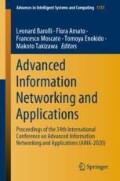Abstract
The present paper presents a linguistic resources usable for Sentiment Analysis purposes which includes about 500 Italian Frozen Sentences formalized into electronic dictionaries and local grammars pairs. The paper will focus on the cases in which words included into sentiment lexicons, endowed with a specific Prior Polarity, take part as constituent into frozen structures.
Access this chapter
Tax calculation will be finalised at checkout
Purchases are for personal use only
Notes
- 1.
The Pior Polarity is defined as the positive or negative polarity of words considered out of context [10].
- 2.
Lexicon-Grammar tables of Italian idioms are available for consultation at http://dsc.unisa.it/composti/tavole/sv/table.html.
- 3.
Those classes can be anytime consulted at http://dsc.unisa.it/composti/tavole/sv/table.html.
References
Clark, H.H., Gerrig, R.J.: On the pretense theory of irony. J. Exp. Psychol. Gen. 113, 121–126 (1984)
Curcó, C.: Irony: negation, echo and metarepresentation. Lingua 110, 257–280 (2000)
Gantz, J., Reinsel, D.: Extracting value from chaos. IDC iview 1142, 9–10 (2011)
Gibbs, R.W.: Irony in talk among friends. Metaphor Symb. 15, 5–27 (2000)
Giora, R.: On irony and negation. Discourse Process. 19, 239–264 (1995)
Giora, R., Fein, O., Schwartz, T.: Irony: grade salience and indirect negation. Metaphor Symb. 13, 83–101 (1998)
Gross, M.: Une classification des phrases «figées» du français. In: Revue québécoise de linguistique, vol. 11, pp. 151–185. Université du Québec à Montréal (1982)
Kennedy, A., Inkpen, D.: Sentiment classification of movie reviews using contextual valence shifters. Comput. Intell. 22, 110–125 (2006)
Neviarouskaya, A., Prendinger, H., Ishizuka, M.: Compositionality principle in recognition of fine-grained emotions from text. In: ICWSM (2009)
Osgood, C.E.: The nature and measurement of meaning. Psychol. Bull. 49, 197 (1952)
Pelosi, S.: Sentita and Doxa: Italian databases and tools for sentiment analysis purposes. In: Proceedings of the Second Italian Conference on Computational Linguistics CLiC-it 2015, pp. 226–231. Accademia University Press (2015)
Polanyi, L., Zaenen, A.: Contextual valence shifters. In: Computing Attitude and Affect in text: Theory and Applications, pp. 1–10. Springer (2006)
Reyes, A., Rosso, P., Veale, T.: A multidimensional approach for detecting irony in Twitter. Lang. Resour. Eval. 47, 239–268 (2013)
Silberztein, M.: NooJ manual (2003). www.nooj4nlp.net
Silberztein, M.: Complex annotations with NooJ. In: Proceedings of the 2007 International NooJ Conference, pp. p–214. Cambridge Scholars Publishing (2008)
Turney, P.D.: Thumbs up or thumbs down?: Semantic orientation applied to unsupervised classification of reviews. In: Proceedings of the 40th Annual Meeting on Association for Computational Linguistics, pp. 417–424 (2002)
Veale, T., Hao, Y.: Support structures for linguistic creativity: a computational analysis of creative irony in similes. In: Proceedings of CogSci, pp. 1376–1381 (2009)
Vietri, S.: On some comparative frozen sentences in Italian. Lingvisticæ Investigationes 14, 149–174 (1990)
Vietri, S.: Lessico-grammatica dell’italiano. Metodi, descrizioni e applicazioni. UTET Università (2004)
Vietri, S.: The construction of an annotated corpus for the analysis of Italian transfer predicates. Lingvisticae Investigationes 37, 69–105 (2014)
Vietri, S.: Idiomatic Constructions in Italian: A Lexicon-Grammar Approach, vol. 31. John Benjamins Publishing Company (2014)
Vietri, S.: The Italian module for NooJ. In: Proceedings of the First Italian Conference on Computational Linguistics, CLiC-it 2014. Pisa University Press (2014)
Vietri, S.: The Lexicon-grammar of Italian idioms. In: Workshop on Lexical and Grammatical Resources for Language Processing, p. 137 (2014)
Wilson, D., Sperber, D.: On verbal irony. Lingua 87, 53–76 (1992)
Author information
Authors and Affiliations
Corresponding author
Editor information
Editors and Affiliations
Rights and permissions
Copyright information
© 2020 Springer Nature Switzerland AG
About this paper
Cite this paper
Pelosi, S. (2020). Semantically Oriented Idioms for Sentiment Analysis. A Linguistic Resource for the Italian Language. In: Barolli, L., Amato, F., Moscato, F., Enokido, T., Takizawa, M. (eds) Advanced Information Networking and Applications. AINA 2020. Advances in Intelligent Systems and Computing, vol 1151. Springer, Cham. https://doi.org/10.1007/978-3-030-44041-1_92
Download citation
DOI: https://doi.org/10.1007/978-3-030-44041-1_92
Published:
Publisher Name: Springer, Cham
Print ISBN: 978-3-030-44040-4
Online ISBN: 978-3-030-44041-1
eBook Packages: Intelligent Technologies and RoboticsIntelligent Technologies and Robotics (R0)

